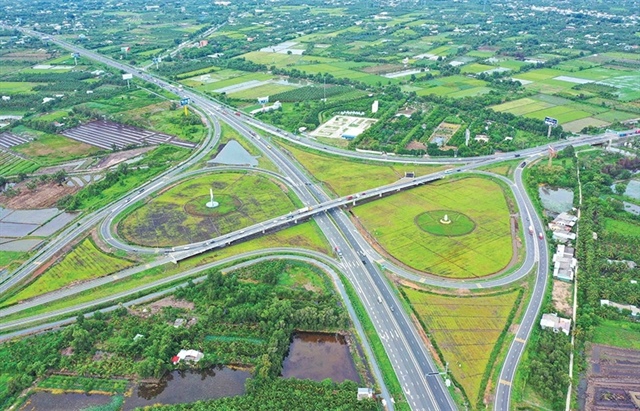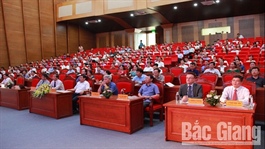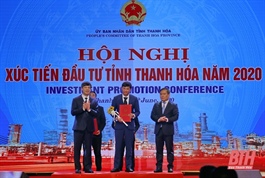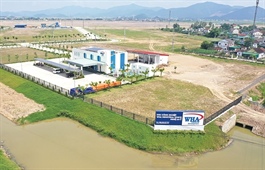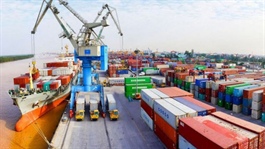Vietnam gov’t plans stronger measures to support businesses post Covid-19
Vietnam gov’t plans stronger measures to support businesses post Covid-19
While a number of supporting policies are in place, the effectiveness of some programs is not up to expectation, said Minister of Planning and Investment Nguyen Chi Dung.
The Vietnamese government is planning stronger measures to support the business community in the post-Covid-19 period, as recent survey showed they are still facing numerous difficulties, particularly working capital, according to Nguyen Chi Dung, minister of Planning and Investment.
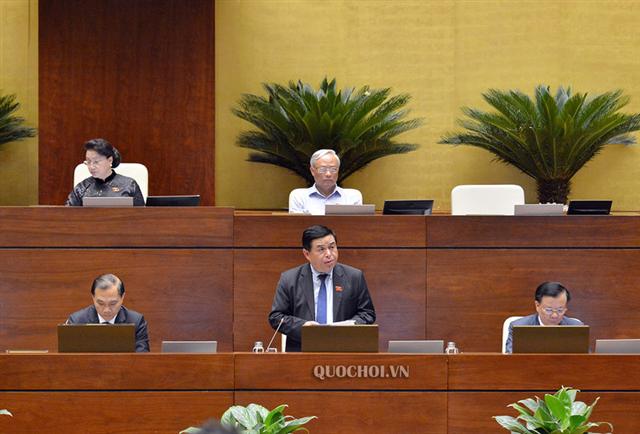
Minister of Planning and Investment Nguyen Chi Dung speaks at a National Assembly session on June 15. Photo:Quochoi.vn
|
While a number of supporting policies are in place, the effectiveness of some programs is not up to expectation, Dung said at a National Assembly sitting on June 15.
As the pandemic remains complicated globally, a mix of long- and short-term solutions is necessary to help firms overcome the current crisis.
It is vital to minimize the number of enterprises going bankrupt or being acquired by foreign companies at cheap prices, Dung stated.
Moreover, local enterprises should take advantages of the upcoming EU – Vietnam Free Trade Agreement (EVFTA) and EU – Vietnam Investment Protection Agreement (EVIPA) to enhance their competitiveness and restructure operations.
For the time being, Dung urged government agencies and local authorities to continue strong efforts towards improvements in the business environment and addressing concerns of the business community.
Predictable legal environment needed for FDI attraction
Under the instruction of Prime Minister Nguyen Xuan Phuc, the Ministry of Planning and Investment (MPI) has submitted a proposal for the establishment of an FDI task force that would specialize in promoting high quality investment to Vietnam.
At present, Vietnam has become a safe destination for tourism, trade and investment, Dung stressed, but acknowledged more work needed to be done to attract multinationals.
The tasks include substantial reform of the business environment via simplified administrative procedures, as well as preparing better conditions for investors in terms of infrastructure, land, human resources, energy, among others.
According to Dung, the legal environment needs to be predictable while any delay in the decision-making process should be avoided.
Vietnam gives priority to FDI projects with high spillover effects and support the development of local firms, especially those in the supporting industries, Dung added.
At a time when countries are competing for capital inflows, Dung expected Vietnam to provide competitive incentive policies for investors, yet remain selective in attracting new investments.
In this regard, Dung said Vietnam is in need of a specific criteria to avoid a race to the bottom in FDI attraction, which could cause severe impacts to the environment and economy.
Provinces/cities should adopt a proactive approach to attract multinationals at the top of global supply and value chains, so that any potential investment would bring benefits for all parties involved.
During the ongoing economic recovery efforts, Dung stated the government has not planned to revise the country’s socio-economic targets for this year.
However, the government’s main objectives would be to ensure stable macro-economic foundation and social security.
A speedy revision of the growth model, improvements in transport infrastructure, water security, environmental protection, and mitigation of climate change, among others, are key solutions in the near future, Dung asserted.
To date, the government has rolled out supporting programs such as a credit aid package worth VND300 trillion (US$12.87 billion), a VND180-trillion (US$7.63 billion) fiscal stimulus package in forms of delay of payment of value-added tax, corporate tax and income tax, and a financial support package for vulnerable people worth VND62 trillion (US$2.7 billion).






